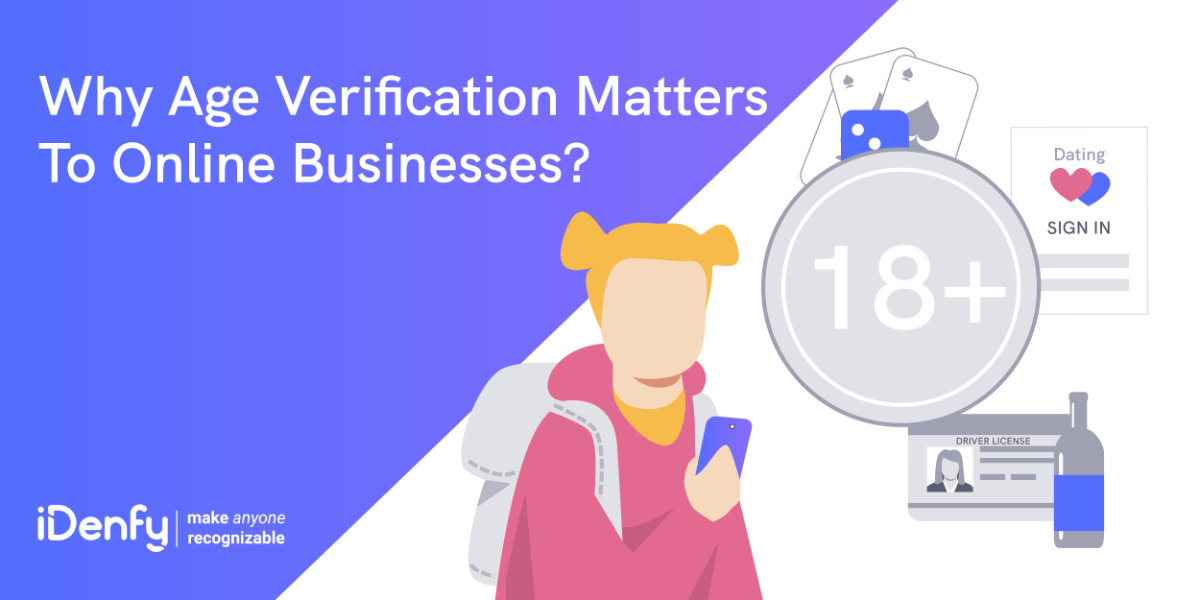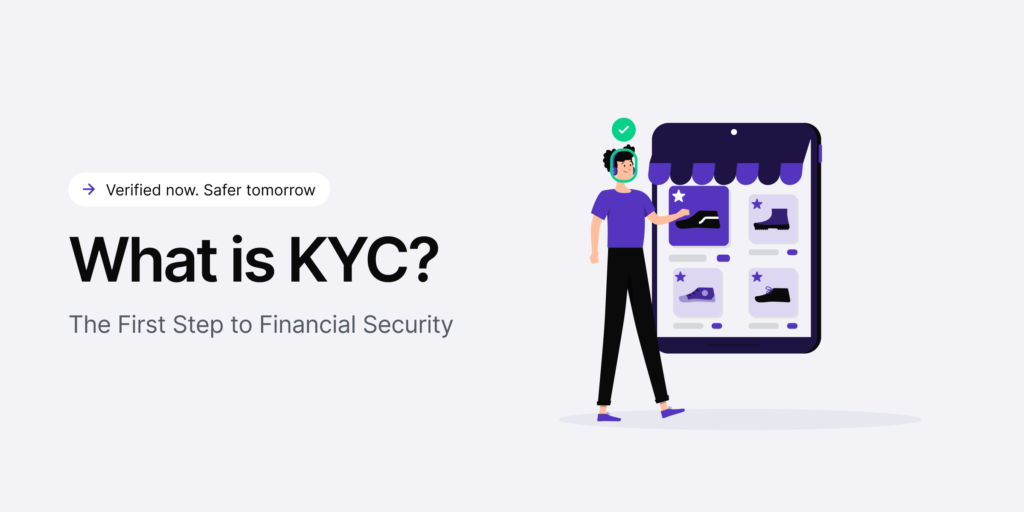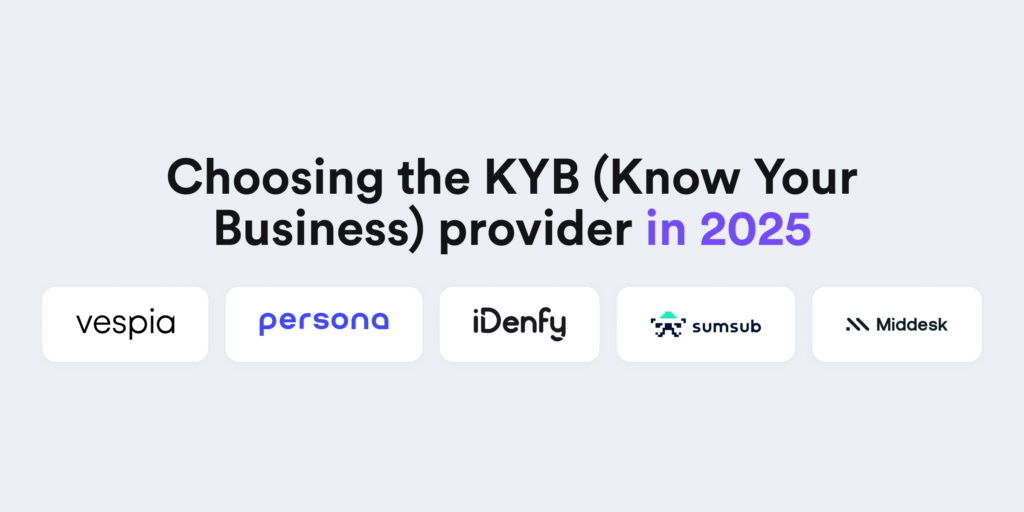Online age verification is a crucial aspect of online platforms that deal with age-restricted content or products. It refers to confirming a user’s age to ensure compliance with legal requirements and protect minors from accessing inappropriate content. For example, vape shops or platforms like OnlyFans need to use this security measure to securely accept users who are over 18.
Even though online businesses contain basic age checks like ‘tick boxes’, also known as age gates, so that users can confirm their age before accessing a site, today, we have more reliable ways to verify age.
Effective age verification methods may involve asking users to provide their date of birth, verifying their identity through government-issued documents and credit card details, or implementing age verification software that cross-references data from reputable databases.
Let’s jump right into more details.
Why is Online Age Verification Important?

Age verification measures are implemented to maintain the safety and integrity of online spaces, especially in industries like gambling, alcohol, tobacco, and adult entertainment. In today’s digital landscape, age verification has become increasingly important due to the ease of access to various online platforms.
The easy availability of different online services has also made the market volatile. But for many business services, online age verification provides two key benefits:
- Ensures regulatory compliance: Age Verification enables compliance with legal regulations and helps businesses avoid hefty fines and penalties. By verifying the age of their users, businesses demonstrate their commitment to responsible practices and ensure that only individuals of legal age can access their products or services.
- Helps maintain a good reputation: Age verification protects businesses from reputational damage and potential legal issues. By implementing robust age verification measures, companies can prevent minors from accessing age-restricted content, which could otherwise lead to negative publicity and harm the brand’s image.
Moreover, age verification helps businesses build trust with their customers by demonstrating a commitment to their safety and well-being. Ultimately, online age verification is a proactive measure that safeguards businesses, mitigates risks and fosters a secure and compliant environment for both businesses and their users.
Related: How Does Age Verification in the Adult Industry Actually Work?
What Risks Do Companies Face When Avoiding Online Age Verification Measures?
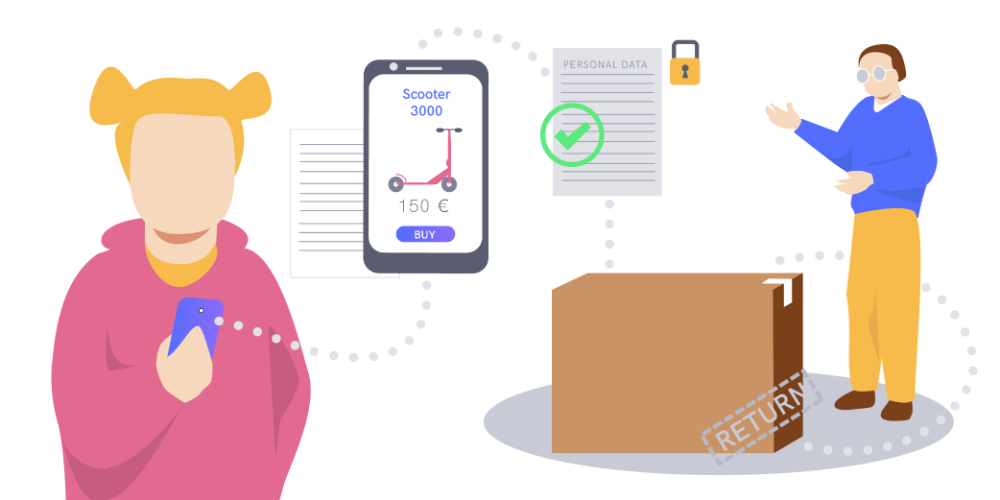
If companies with online services do not apply age verification measures, they could face non-compliance penalties. It might also lead to a fall in market reputation for online and offline services alike.
Here are some of the risks that companies face for the lack of age verification measures:
1. Non-Compliance Penalties
The GDPR (General Data Protection Regulation) applies to all companies and organizations irrespective of what service or products they offer. The regulation ensures that user’s personal data is kept secure and private. The framework works well and serves the purpose of age verification during the customer digital onboarding process. If a company fails to comply, GDPR can impose a fine between $23 million to 4% of annual global turnover – whichever is greater.
On the other hand, Children’s Online Privacy Protection Act (COPPA) had a minimum non-compliance penalty of $160,000, which was later increased to $43,280 per violation.
2. Damaged Trust and Market Reputation
One of the critical aspects of a business to grow online is to offer an excellent customer experience. Digital customer onboarding is one way to ensure a complete customer experience. A survey by Customer Thermometer concluded that 13% of consumers were ready to pay 31-50% more if they had a good onboarding experience. Meanwhile, if you do not have reliable age verification software during onboarding, it could lead to a lousy brand image apart from non-compliance penalties.
3. Financial Loss
Several companies face friendly fraud from parents who make chargebacks regarding their children’s non-consenting transactions. If these companies had age verification software integrated into the application and an age verifier, it could stop chargeback losses for the business. Such software regulates age-restricted products and service usage and, thus, helps a company prevent such loss.
Related: Chargeback Fraud Prevention — Key Strategies for Businesses
Industries that Require Age Verification

Today, most companies have realized the need for online age verification software. With growing mobile traffic on most apps, underage usage and the sale of age-restricted products to minors are concerns. Let’s take a look at some of the industries that require age verification.
Alcohol and Tobacco
The two products are well-regulated worldwide. The FDA has a strict prohibition on the sale of cigarettes to minors. Selling alcohol and tobacco products to minors is illegal in most countries, making age verification crucial for online platforms and e-commerce websites that sell these items. Plus, there is an age restriction of 21 years on alcohol sales to an individual in the US. It makes online age verification for alcohol and tobaccos sale a high priority.
Online Gaming
Online gaming is an open portal where children can talk to any player worldwide. Certain games or game features may have age restrictions, and age verification is necessary to prevent minors from accessing inappropriate or mature content. This situation puts them in danger of falling for scams apart from experiencing online bullying and harassment. Hence, online gaming portals require age verification to safeguard young users.
Gambling, Casinos and Sports Betting
Like alcohol and tobacco, the gambling industry is heavily regulated worldwide. Children can quickly get gambling and betting addictions since online websites are easy to access. When age verification happens during entry on online gambling websites, it prohibits children from playing.
Related: How Can You Detect Arbitrage in Sports Betting?
Dating Websites
Online dating services have gained major popularity during the past decade. These sites offer very low entry restrictions, and any underage user can access their services without breaking a sweat. Underage dating is considered an offense in most countries, resulting in legal action. With strict age policies and verification systems, dating service providers can check underage access to their service and avoid legal actions.
It’s important to note that the specific industries and age verification requirements can vary depending on the country or jurisdiction. Businesses operating in these industries need to understand and adhere to the relevant laws and regulations regarding age restrictions and implement appropriate age verification measures accordingly.
Online Age Verification Regulations in Different Countries
Various countries worldwide have assigned regulators that watch over access to online services, gambling, products like medicine, etc.
Every country has its age verification regulations in place. Belgium, Denmark, and Spain assign eIDs to children once they turn 12. The minimum age to purchase alcohol in Europe is different for each country – the UK, Spain, and France allow 18 and above, while Italy and Denmark allow 16 and above.
Here are some age restrictions in various countries:
Age Restrictions on Product Purchase
UK: In the United Kingdom, under the Protection From Tobacco Act 1991, Offensive Weapons Act 1996, The Pyrotechnic Articles (Safety) Regulations 2015, Video Recordings, and Gambling Act 2005 Act, online retailers cannot sell alcohol, tobacco, knife, fireworks, video recordings, and games to minors.
US: FDA legally obligates online businesses that sell age-restricted products to possess age verification scanners. Under the Prevent All Cigarette Trafficking (PACT).
Denmark: Under Act No. 426 of 18 May 2016, any sale of nicotine-containing and non-nicotine e-cigarettes to anyone under 18 is an offense.
Germany: The Protection of Young Persons Act contains prohibitions regarding games, alcohol, and tobacco and determines the age limit for different sub-parts.
Age Restrictions on Gambling Access
UK: The Gambling Act 2005 dictates all online gaming websites to conduct legit identity and age verification before any customer can open their account. The UK has a gambling age restriction of 18 years or above.
Spain: Under the Ley 13/2011 de Regulacion del Juego 25 2011 (Gambling Regulation Law 13/2011), every data that a customer declares is checked against their eID database.
Denmark and Italy: Both governments have a standard interface according to The Gambling Act 2012 and The Abruzzo Decree 2010. These interfaces must be a part of the registration process, totally personal data with government databases – Fiscal Code identifier and NemID.
Germany: The country has The Gambling Acts, where each German state directs regulators to put a fine of up to 500,000 euros.
Age-Restricted Online Content
UK: The UK government had plans to put age verifications on online adult content to prevent minors from accessing these sites (The Digital Economy Act 2017). Unfortunately, in October 2019, they suspended the project, citing privacy breach issues.
USA: Under Children’s Online Privacy Protection Act, nearly all social media services have an age limit of 13 and above.
How iDenfy’s Online Age Verification Software Helps Simplify the Process
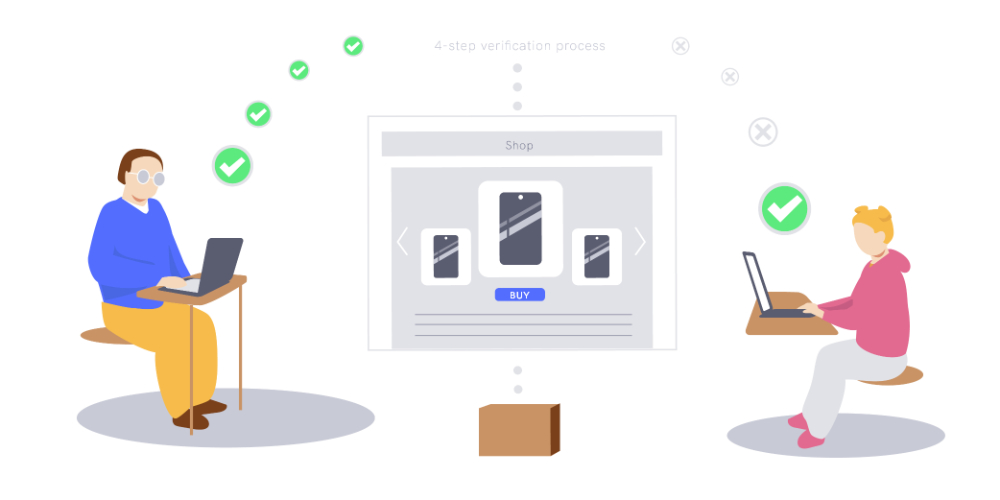
You’ve guessed it — iDenfy offers online age verification along with identity verification during the customer onboarding process. It turns the customer’s device into an ID scanning and facial recognition system for faster identity verification. When combined with liveness detection, iDenfy gives a user-friendly 4-step verification process that stops fraud and restricts underage usage of age-restricted services and products.
Automated verification software makes it easy for customers to fulfill all the conditions and carry out their transactions seamlessly. It makes the onboarding process faster, thus giving the customer a better service experience.
Get started today, or book a meeting for a free demo.

